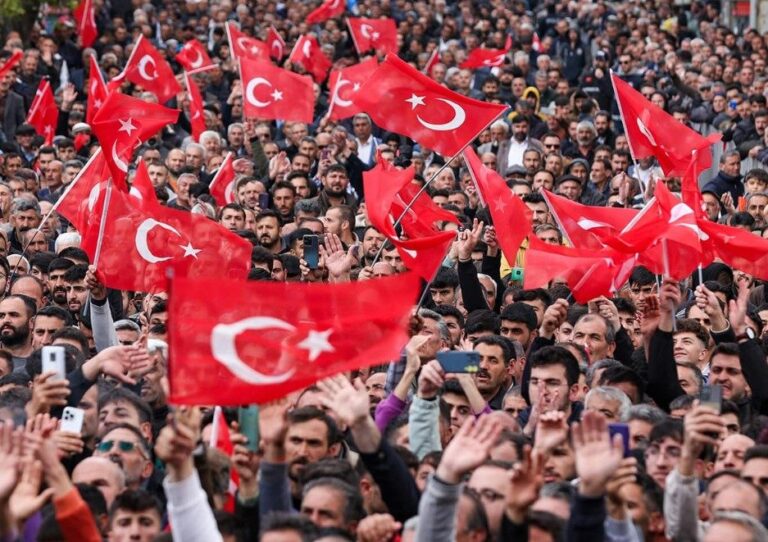Two weeks. Turks will have to wait until 28 May to know whether the era of Recep Tayyip Erdogan, the man in power for 20 years in Turkey is over or whether the ‘Rais’ will continue to rule for another five years.
The incumbent president stood at 49.24 per cent of the vote after the counting of one hundred per cent of the votes was completed. The number one challenger, opposition leader Kemal Kilicdaroglu, on the other hand, obtained 45.06 per cent of the vote.
Neither of them therefore exceeded the 50 per cent threshold needed to win the election in the first round. A runoff between the two challengers will take place on 28 May. Kilicdaroglu was leading in the polls until the day before the elections.
Table of Contents
Elections in Turkey, runoff due in two weeks
After a long night, with operations slowed down due to recounts and disputes all over the place, Kilicdaroglu, who had earlier declared victory, announced that he will win in the runoff. Erdogan, strangely more cautious, after emphasising that he was in the lead by throwing accusations at his opponents, then promised to respect the outcome of the runoff.
The other elections, the parliamentary ones, however, offered a clearer picture. Here, albeit with partial data, the majority coalition, led by Erdogan’s Akp (37 per cent), would have exceeded 50 per cent of the seats. The opposition coalition, on the other hand, would have ended up below 35 per cent, with Kilicdaroglu’s Ghp party below 25 per cent. But these results are not yet official.
The turbulent night, with all its disputes and the recounts of ballot papers that took place in polling stations across the country, seems like an appetiser of what might happen in the next two weeks. If the election campaign so far has been boiling hot and made of accusations and low blows, the one that actually starts today will be incendiary.
Read also: The main political elections to watch out for in 2023
Record turnout
What is certain for now is the record turnout. Just under 90 per cent. In the modern history of Turkey (here the counting in real time), such an impressive popular participation in the vote has never been seen.
You could see it right from the start, walking around the polling stations in Istanbul, a city of many souls, which woke up on a finally sunny morning to an unusual silence. From the early hours, but also at lunchtime, voters waited patiently on their feet in very long queues for their turn.
Until the last day, the polls gave the opposition candidate a few percentage points lead. Until the last day Erdogan spent himself, with all his might, further raising the tone of an already incendiary election campaign. He used state resources, and his preponderant influence in the media, to woo voters.
Erdogan goes all out
He accused opposition members of colluding with ‘terrorists’, an extremely sensitive topic in Turkey. Of being ‘drunkards’. Of defending LGBTQ+ rights. Diversity, which he sees as smoke and mirrors, and considers a serious threat to traditional family values, in a Muslim-majority nation that must be inspired by Muslim values.
He has not failed to tempt the undecided and those most affected by inflation with the most convincing of arguments: economic benefits. To regain support, he effectively removed the retirement age during the election campaign.
He raised wages, almost doubling public wages four days before the face-off, subsidised electricity and gas bills. He promised great infrastructure. The final results will tell whether this incendiary campaign, whether the package of wage increases and subsidies, worked. It seems it did.












